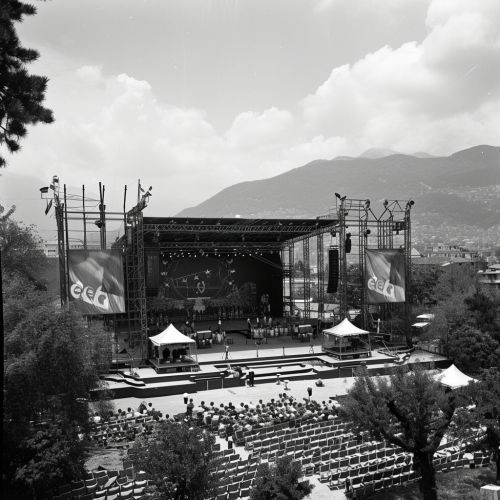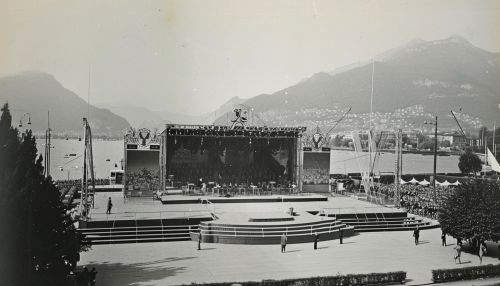History of the Eurovision Song Contest
Origins and Early History
The Eurovision Song Contest (ESC) was established in 1956 by the European Broadcasting Union (EBU) with the aim of fostering unity among European nations in the aftermath of World War II. The first contest was held in Lugano, Switzerland, with seven participating countries. Each country presented two songs, a format that was abandoned in subsequent years due to the increasing number of participating countries.


The early years of the contest were marked by a dominance of Western European countries, with Luxembourg, France, and the United Kingdom achieving multiple victories. The contest's rules and format evolved over time, with the introduction of a jury voting system in 1957 and the limitation of each country to one song in 1958.
Expansion and Modernization
The 1960s and 1970s saw the expansion of the contest beyond Western Europe, with the first entries from Eastern Europe and the Mediterranean region. The contest also began to reflect changes in the music industry, with the introduction of pop and rock songs alongside traditional ballads.
In 1973, the rule requiring songs to be performed in a country's official language was lifted, allowing countries greater freedom in their choice of entries. This led to a greater diversity of musical styles and languages in the contest.
The 1980s and 1990s saw further modernization of the contest, with the introduction of a televoting system in 1997, allowing viewers to vote for their favorite songs. This period also saw the first entries from non-European countries, with Israel's participation in 1973 and Australia's debut in 2015.
Controversies and Criticisms
Despite its aim of promoting unity, the Eurovision Song Contest has not been without controversy. Accusations of political voting, where countries award points based on political alliances rather than the quality of the songs, have been a recurring issue. The EBU has made several attempts to address this, including the introduction of a mixed voting system in 2009, which combines jury and televote scores.
The contest has also faced criticisms over its perceived lack of musical quality and its focus on spectacle over substance. However, it has also been praised for its promotion of cultural diversity and its role in launching the careers of several successful artists, including ABBA and Celine Dion.
Impact and Legacy
The Eurovision Song Contest has had a significant impact on popular music in Europe and beyond. It has launched the careers of several successful artists and has influenced the music industry through its promotion of different musical styles and languages.
The contest's format has also been replicated in other regions, with the establishment of similar contests in Asia and America. Despite its controversies and criticisms, the Eurovision Song Contest remains a popular and influential event in the global music calendar.
